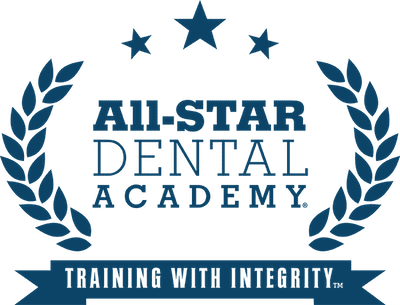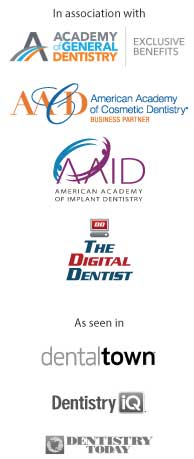I recently came across an article in the Harvard Business Review that I thought was directly applicable to our clients regarding leadership training for dentists. Leadership and management skills development are critical for entrepreneurial dentists – but we have to look at this kind of training in a different way from how large and mid-scale organizations approach it.

In the article, the authors highlight three main issues around leadership training and/or personal development, and I think they are true (especially the second one) for dentists:
- Insufficient resources – “I can’t afford to work on management or leadership skills.”
- Perceived lack of time – “I’m much too busy to find time to train.”
- Uncertain if it is a good fit – “Dentistry isn’t Amazon, and I’m not convinced that the general business focused leadership programs I’ve heard about will solve our problems.”
These issues are real and can be difficult to overcome. All three are based on the reality that most small businesses like a dental practice (and don’t take this personally!) are poorly managed. Few dentists leave school with the fundamental business skills needed to run their own practice successfully. And any business training typically addresses “hard” skills like understanding the financial aspects of running a practice or HR issues. (Have you read the classic business book for entrepreneurs, “The E-Myth”? You should!) Many independent dentists learn from a mentor while working as an associate. Others rely on consultants to train them when they open or acquire a practice, or hire a business/office manager.
However, acknowledging and overcoming these objections is critical because dentists stand to benefit greatly from leadership development, and failing to work on the soft skills of leadership and management can be painful. Dentists that have associates, office managers, or multiple offices MUST develop these skills. The good news is that there are programs out there that are appropriate for dentists.
Have you heard about All-Star’s Dental MBA program? It’s part of our Online Training Program designed especially for independent dentists who want to take their practices to the next level. Email Heather@allstardentalacademy.com if you’d like to learn more.
Back to the article (emphasis is mine): “Data … shows a clear correlation between superior talent planning and company performance. But while leaders rate themselves high in their ability to identify and assess their best performers, they give themselves poor marks in four critical areas that leadership development programs address: succession planning, developing high potentials, identifying retention risks, and mapping and filling skills gaps.”
How does this apply to dentists and their businesses? It may not be obvious at first glance, but each of these areas does apply. But since the dentist is typically the sole “leader” in their practice, these can easily be overlooked. But don’t shy away from giving a business/office manager opportunities to improve as managers (and leaders).
Here are four important issues that the authors identify when it comes to leadership and management training:
Design the program to address pressing issues
Leadership development is a long-term investment, but it can also solve immediate problems. A perceived resource constraint such as insufficient funds or time — can vanish if the problem is framed correctly.”
This should be obvious, but surprisingly, many training programs are too long-term focused and can fail to identify training that can address urgent issues. And in the dental practice, many immediate issues MUST be addressed quickly. Most practices don’t have the deeper pockets of mid and large businesses, so a problem that a mid-sized or large company would address at some uncertain time in the future can quickly break a small business.
Focus on scaling, not just growing.
Growth and scale aren’t the same. “In general, we think of growth in linear terms: A company adds new resources (capital, people, or technology) as its revenue increases. By contrast, scaling occurs when revenue increases without a substantial increase in resources.”
This one may seem to be a bit more challenging to map back to the business of dentistry, except that it really does matter. Leadership and management training can help you understand the role of “systems” in the practice. Systems are “a group of interdependent elements or tasks that meet a business objective.” The magic of systems is that once they are defined, they become “people-INdependent.” Obviously, people are still critical in executing a system, but systems allow scalability to occur in the practice. Some systems that we teach in the All-Star Dental Academy® Training Program are the GREAT Call® Process, Triple S Scheduling System™, 5 P’s of Patient Experience™, 5 R’s of Case Acceptance™, and 4 T’s of Marketing™.
An essential component of leadership and management training is learning to identify opportunities in your business that can be systematized for efficiency without adding more overhead.
For example, one system in particular is especially important – there is really no reason for marketing until you have a SYSTEM in place to take advantage of your investment in potential new patients. The crux of marketing is that many dentists fail to face reality: it does not matter how effective your marketing efforts are if you can’t get people who visit your website or call your office to BOOK APPOINTMENTS. That’s the essential goal of marketing, right? To get patients into treatment. If you don’t have a system with the right people and the right skills, you could spend a million dollars on marketing and still have holes in your schedule.
Another lesson from the book “The E-Myth” mentioned in the article that is key for small business leaders is that: “[Leadership training are allowed] top management should spend less time supervising (working in the business) and more time leading (working on the business).” Identifying opportunities for scalable systems is an essential component of leadership.
Train in the real world
Your “real-world” is the practice. You will face daily leadership and/or management challenges. So, avoid training that doesn’t directly address those kinds of issues IN THE CONTEXT OF DAILY OPERATIONS. Leadership “retreats” or seminars can be attractive, but they are often divorced from that important context of the dental practice.
Transfer ‘culture’ in addition to skills and frameworks
“The middle market is brimming with founder-led businesses whose cultures are critical to their relationship with customers. As companies grow, these cultural characteristics are diluted by the process. While the process is unavoidable, dilution is not.”
One of the core issues leadership and management training should address is defining a “vision” for your practice. This vision starts with standard-of-care but goes beyond to touch every part of the business. What suppliers will you work with? How will you market? What role does “service” play in your patient experience?
Conclusion
When you’re ready to begin developing your leadership skills, how do you know where to begin?
“While executive MBA programs at major universities can be excellent, their cost, time commitment, and emphasis on issues unique to large enterprises may make them a less-than-optimal fit for the middle market.
However, if you’re looking for something that fits perfectly, start by reaching out to your network and learning what worked best for them. Bear in mind that the most critical factor to consider is whether the program you choose is appropriate for your organization.”
This is clear and valuable advice. Your fellow dentists will often be your best resource.
Download our FREE eBook – Dental Practice Excellence – 3 Steps to an All-Star Practice. We explore how minor changes in your approach to training on phone skills and scheduling, and the positive impact training has on your employees will help you take your practice productivity to pre-pandemic levels.









